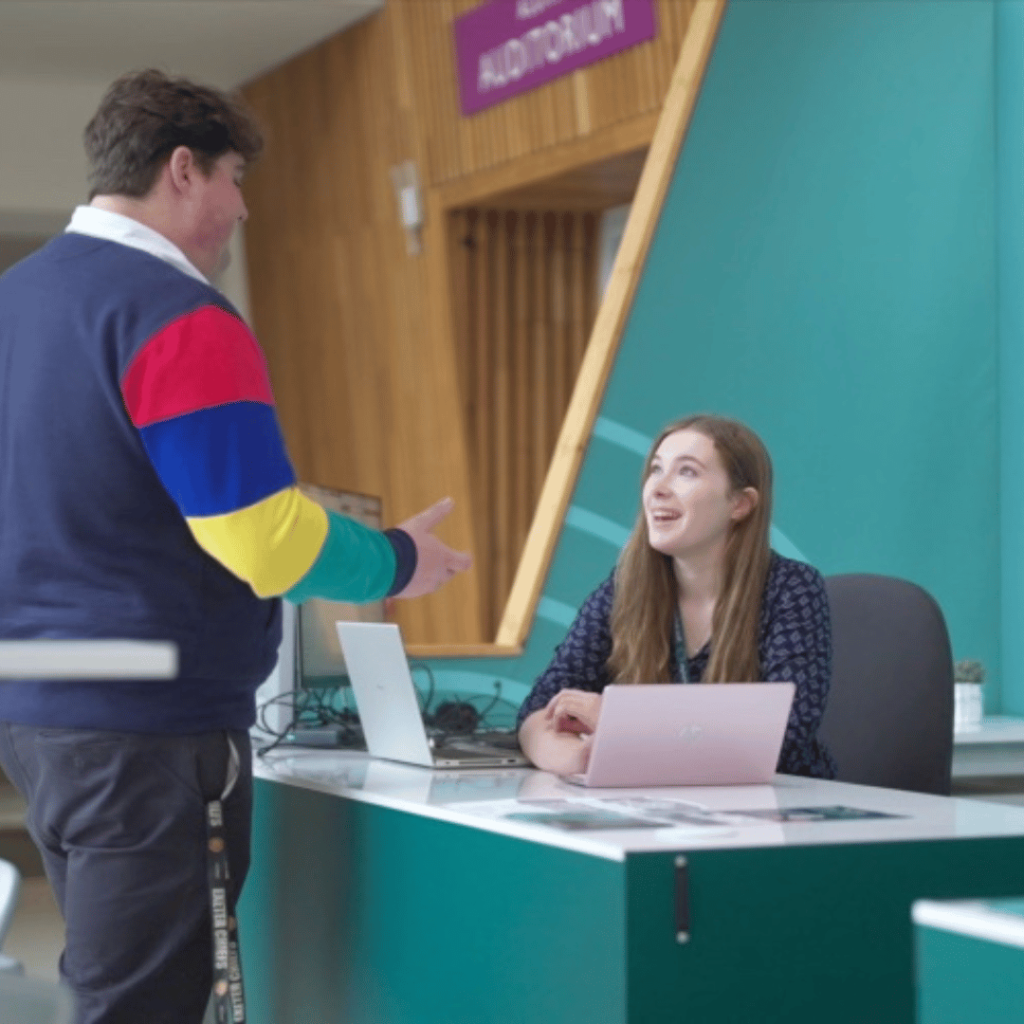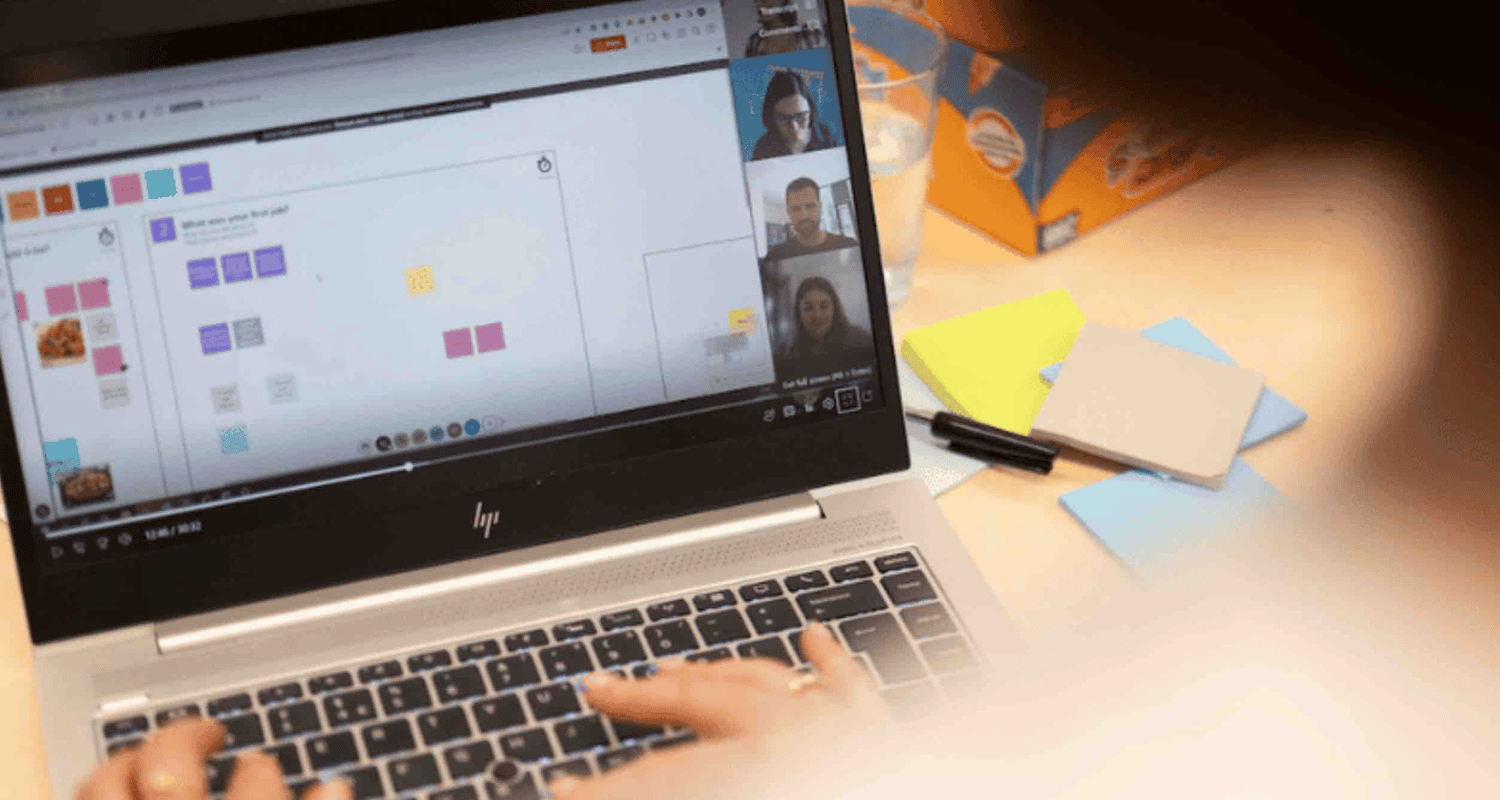The Digital Hub’s tips for managing your digital wellbeing
University life increasingly revolves around digital tools, from virtual lectures and online submissions, to social media interactions. With this shift, university students and staff may experience a rise in “digital anxiety,” a feeling of stress or worry related to technology use, and managing these feelings and your digital wellbeing is important.

The University of Exeter’s Digital Hub provides support for students and colleagues on how to use all the digital tools we have available to us at the University of Exeter.
At the Digital Hub, we want to help the University community feel more comfortable while using new digital tools. This blog post written by the Digital Hub team shares the Hub’s top tips for managing digital anxiety.
Understanding digital anxiety
Digital anxiety often arises from the pressure of being constantly connected and the reliance on technology for academic and professional success. It could manifest as feelings of fear or stress triggered by technology use, which can occur when technology fails to work as expected or when users feel overwhelmed by online demands.
Common triggers of digital anxiety
For many, technical issues can be a source of stress. When systems like multi-factor authentication (MFA) malfunction, access to emails, files, and other essential resources can be disrupted. Additionally, concerns about cybersecurity and data privacy can intensify anxiety, especially as sensitive information is often stored online. Overuse of social media can also lead to feelings of isolation, with constant notifications creating a sense of being perpetually “on call.”
Feelings of anxiety surrounding these problems are normal, and we want to help the University community to feel more comfortable when encountering these issues.
Impact on your digital wellbeing
Digital anxiety can extend beyond the digital sphere, affecting your digital, personal and professional lives. Persistent stress from digital challenges can lower confidence in learning new technologies, strain mental health, and increase feelings of isolation. People often feel relief once tech issues are resolved, highlighting the emotional weight technology often holds.
Here are some tips from us on how you can alleviate your digital anxiety:
- Recognise your limitations: Acknowledge that digital skills aren’t always natural. It’s okay not to know everything about every tool. Learning takes time, and it’s alright to seek help – that’s what the Digital Hub is here for!
- Engage in training: Asking for support can improve your digital skills, boosting confidence and reducing frustration. Our team of Student Ambassadors make asking for help more less daunting, and you can access help in many ways to find the way that works for you. Visit us in person, book an online session, or access our online library of how-to guides.
- Set screen boundaries: Managing screen time is essential. Many people move seamlessly from work screens to personal ones, but finding time to disconnect is vital for mental wellbeing. Try setting aside “tech-free” hours to create a clear divide between work and relaxation. These hours could be during meals or before bed.
- Communicate and seek support: If you feel anxious, discuss it. It’s important to talk openly about digital stress rather than suppressing it. The University offers a wide range of wellbeing services including for those experiencing anxiety.
- Manage notifications: To minimise interruptions, consider turning off notifications for certain apps during study or personal time. This small step can help create a more balanced relationship with technology and prevent work-related notifications from intruding on personal moments.
Digital wellbeing is a balancing act, especially in an academic setting. By taking small, intentional steps, students and colleagues can develop healthier relationships with technology, managing digital demands while protecting their mental health.
Visit the Digital Hub to find out more about how we can help you with managing your digital life at the University of Exeter.
Read this blog post written by our Digital Skills Leads to understand more about digital wellbeing.
– Written by the Digital Hub team
Read our 2030 digital strategy.
Learn more about the products and services we’re delivering.

